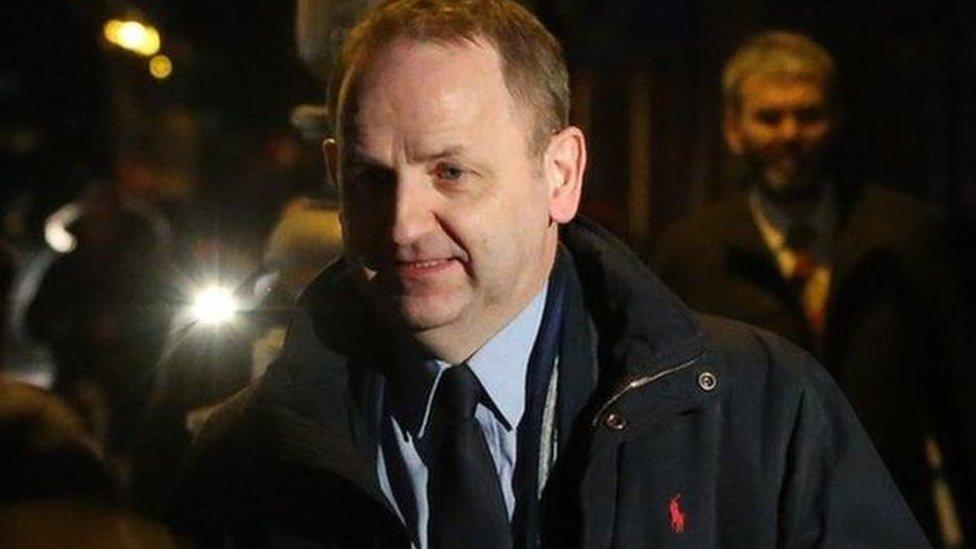Garda chief accepts force may have acted dishonestly
- Published
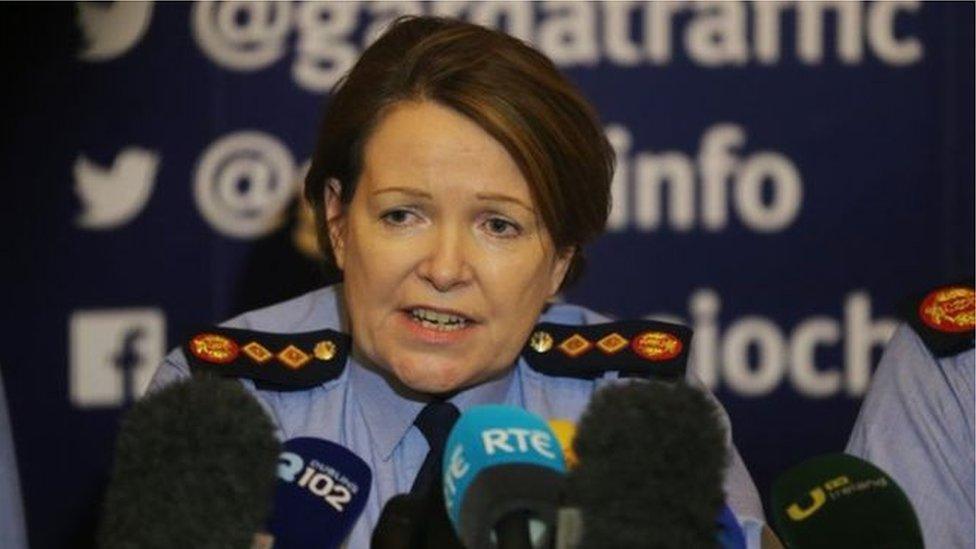
Garda Commissioner Nóirín O'Sullivan is under pressure over revelations about the police force
Irish police commissioner Nóirín O'Sullivan has acknowledged gardaí (police) may have acted dishonestly by inputting false breath test figures into the force's computer system
Last week, it emerged almost one million drink-driving tests recorded by police did not actually take place.
An Garda Síochána (Irish police) also admitted an error that caused almost 15,000 wrongful traffic convictions.
Ms O'Sullivan was appearing before an Irish parliamentary justice committee.
She said gardaí have still not established the reasons why almost one million false breath tests were recorded.
Ms O'Sullivan said she apologised "for the grave mistakes and wrongdoing during the last decade that have led to the two controversies we are here today to discuss".
"Those mistakes and wrongdoings are unacceptable in policing terms, unacceptable in ethical terms, unacceptable in terms of public trust, and, most critically, unacceptable to the advocacy and support groups involved in road safety and to those who were wrongly brought to court," she added.
"They have raised serious issues about how we managed the service, how certain gardaí operated on the ground and their supervision.
"Given the scale of these issues, they can't simply be blamed on one individual or one area. It is a collective failure. From top down to bottom up."
Some deputies at the committee wanted to know if bonuses and performance targets were a factor in the exaggeration of the figures.
Ms O'Sullivan said some divisional officers' performance targets which led to bonuses were connected to reductions in road deaths.
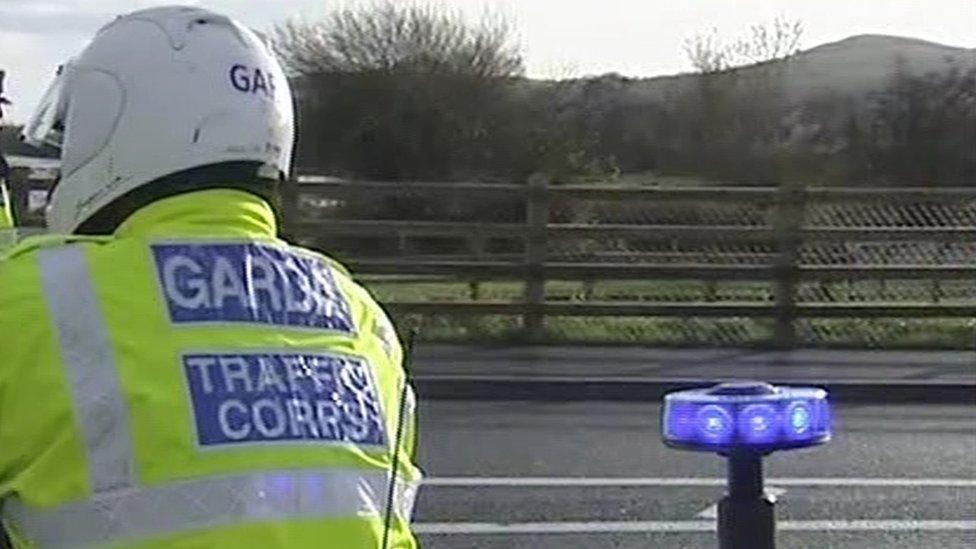
Officers recorded nearly a million more roadside alcohol tests than they had actually carried out in a five-year period up to 2016
She said that a hypothesis may be that the recording of data on the mandatory alcohol checkpoints, which she said were preventative measures, was not seen as important in the detection of offences.
Ms O'Sullivan said all senior managers have committed to delivering on a reform programme.
Meanwhile, the officer in charge of roads policing, Assistant Commissioner Michael Finn, emphasised that there was no competition between garda regions to see who had the highest figures.
He said he was satisfied with the accuracy of the data on checkpoints. He also said it was an error on his part that the Irish Minister for Justice was not informed.
On Thursday evening, gardaí clarified that the last claim for a bonus payment for senior officers was made for activities in the year 2007. They said the scheme was ended by the Department of Finance in 2009.
Gardaí say they do not believe senior officers were paid for breath tests and are clarifying the situation regarding checkpoints. Gardaí said that no bonus payment was made to current members of the garda executive.
At the weekend, Ms O'Sullivan said revelations over penalty points and breath test discrepancies are "unacceptable".
She said on Saturday that the police service was on a journey of radical reform and "it is inevitable that we will identify more examples of bad practice".
On Tuesday, the government announced it was planning two separate investigations.
Taoiseach (Irish prime minister) Enda Kenny announced an independent review of the overall operation of the force.
'Financial irregularities'
A second investigation will probe the wrongful convictions of almost 15,000 motorists, and apparent false data on breath tests.
Mr Kenny also said on Tuesday that the government continues to have confidence in Commissioner O'Sullivan.
She was already facing questions over her leadership because of allegations of a smear campaign against a whistleblower, Sgt Maurice McCabe.
Sgt McCabe was one of two officers who raised concerns years ago about the alleged deletion of penalty points from the driving licences of well-connected offenders.
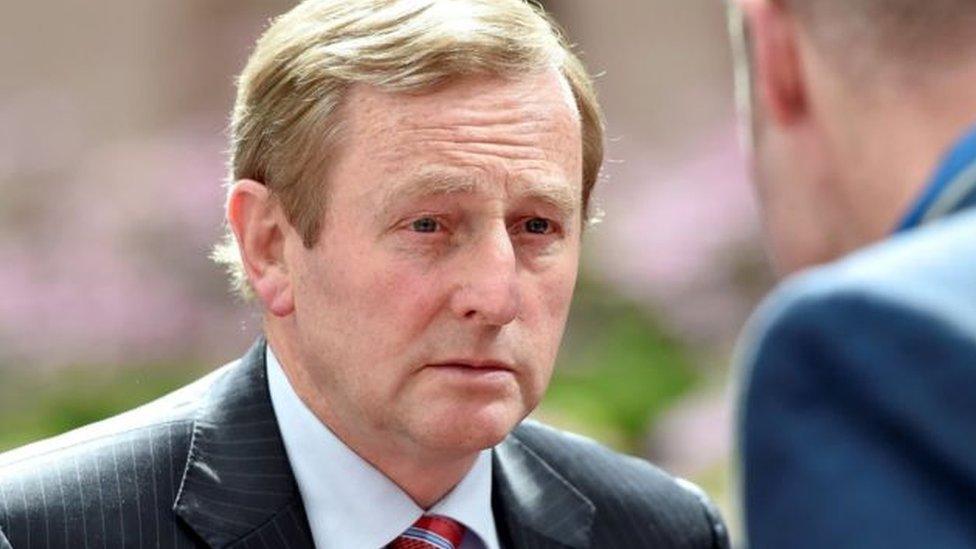
Taoiseach Enda Kenny
Exact details of the independent review are to be outlined next week.
In the meantime, an external inquiry is being set up into the erroneous Garda statistics and prosecutions.
Separately, An Garda Síochána has published a report on financial irregularities at its training college.
Its report revealed that money was being spent on gifts and entertainment, and identified a non-transparent system of accounting.
Commissioner O'Sullivan said that while the accounting practices would not be acceptable by today's standards, there was no misappropriation of money or misuse of public funds.
Tánaiste (deputy prime minister) Frances Fitzgerald told the Dáil on Tuesday that the report raises serious governance issues and will be referred to the Comptroller and Auditor General and the Public Accounts Committee.
- Published29 March 2017
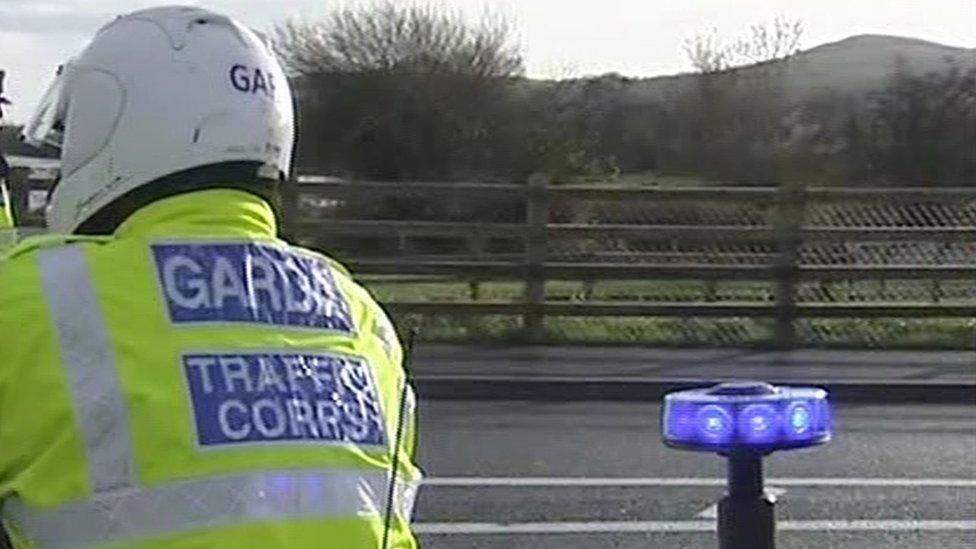
- Published29 March 2017

- Published25 March 2017

- Published27 February 2017
